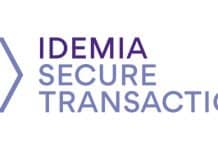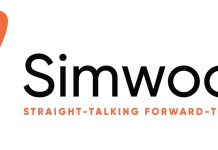
Deutsche Telekom has launched the IoT Solution Optimizer, a scalable online tool that provides technical consultancy and customer onboarding services for reliable and cost-effective IoT solutions.
It enables businesses around the world to model and optimize the performance of IoT applications in numerous vertical industries such as smart city services, security or asset tracking.
The service brings together the hardware, application and network feature elements necessary to assess IoT solution designs. Users can either model their own custom design, or try a standard IoT offering off the shelf. All in an easy to follow, step-by-step experience that takes only minutes.
“Businesses investing in IoT solutions increasingly look for leadership in a fast-developing, yet still very fragmented industry,” says Ingo Hofacker, Senior Vice President, responsible for the IoT business at Deutsche Telekom. “Deutsche Telekom’s IoT Solution Optimizer is the first service which pairs technical IoT consultancy with a comprehensive solutions shelf. It is extremely easy to use, offering reliable guidance and exceptional choice throughout the process. Our clients can now make fact-based decisions before rolling out their intended IoT solutions, significantly improving time-to-market, while minimizing cost and risk.”
Nowadays, enterprises who want to deploy IoT solutions on a large scale often perform costly pilots to gauge whether their designs deliver the long operating lives that their business case mandates. With the IoT Solution Optimizer, customers can assemble a “virtual twin” of the product they want to deploy, for example a smart parking service. They first pick the countries where their smart parking sensors will run, the access technology and the relevant hardware components, such as radio modules and batteries. Then, they specify the behavior and deployment aspects of the smart parking application, including payload and protocol, power saving features, coverage and temperature environments. Once the custom design is finalized, it is used to model reliable results of expected battery life on the selected operator networks. The IoT Solution Optimizer also shows what aspects of the solution can be optimized to improve economic viability. Performance analyses that would have previously taken industry experts several man-weeks to complete, can now be delivered to customers in just seconds.
The world’s first IoT ecosystem
The IoT Solutions Optimizer brings together for the first time a strong network of globally recognized IoT players. These include:
∙IoT Chipset Vendors: Sequans, Altair Semiconductor, HiSilicon, MediaTek, Samsung Electronics
∙IoT Module OEMs: u-blox, Advantech, Fibocom, Foxconn, Gemalto, Lierda, Murata, Neoway, Quectel, Ruijie Networks, Sierra Wireless, SIMCom, Telit, Teltonika
∙IoT Device Suppliers: CompoTEK, DIGI International, Tekmodul, LUPUS-Electronics, Nedap Mobility Solutions, Sercomm
∙Battery Manufacturer: Saft, a company of TOTAL
∙IoT Platform with oneM2M Service Layer: Chordant
∙IoT Consultancy, Acceleration and Prototyping: hub:raum, Detecon, ORBIT IT-Solutions
∙IoT Service Providers: Veolia
Deutsche Telekom is ready to integrate additional mobile network operators and suppliers into the service to further enrich the IoT experience for customers, bridge the industry’s fragmentation, and allow for modeling of device performance in numerous markets across the globe. Interested parties are welcome to join.
Availability
The IoT Solutions Optimizer is currently available for applications based on the mobile IoT technology NB-IoT (NarrowBand IoT). NB-IoT solutions can be analyzed and optimized for eight markets with Deutsche Telekom networks: Austria, Croatia, Czech Republic, Germany, The Netherlands, Poland, Slovakia, and the United States. Hungary will be included in the coming months. Modeling based on the mobile IoT technology LTE-M (LTE for Machines) will be introduced in Q3 2019.
As part of Deutsche Telekom’s mobile IoT market push, the company has to date rolled out NB-IoT across nine countries in its European footprint as well as the United States. LTE-M is due to be rolled out as of mid-2019 in several of Deutsche Telekom’s European markets.










